Vladimir Markovnikov rule:
Alkenes undergo electrophilic addition reactions. It is triggered by the acid acting as a electrophile toward π-electrons of the double bond.
Markovnikov's rule states that when an unsymmetrically substituted alkene reacts with a hydrogen halide, the hydrogen atom adds to the carbon that has the greater number of hydrogen, e.g.,
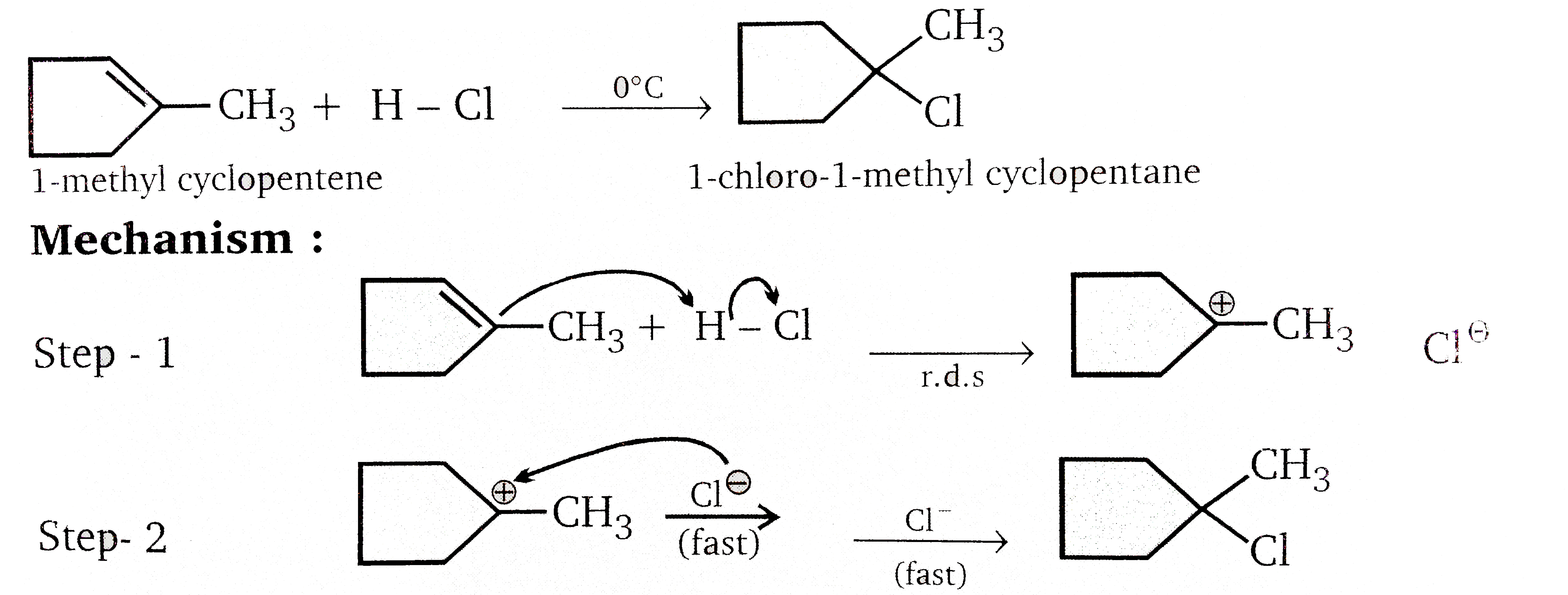
In which of following reactions, carbocation rearrangement is possible?
(CH3)4CH−CH=CH2HCl−−−−−→0∘C
(CH3)3C−CH=CH2HBr−−−−−−−→0∘C/Cl4
Ph−CH2−CH=CH2HBr−−−−−→CCl4
All of these
The correct Answer is:D
d


Topper's Solved these Questions
- HYDROCARBONS (ALKENES)BOOK - MS CHOUHANCHAPTER - HYDROCARBONS (ALKENES)EXERCISE - Level 1 (Q.1 To Q.30)
1 Videos
- HYDROCARBONS (ALKENES)BOOK - MS CHOUHANCHAPTER - HYDROCARBONS (ALKENES)EXERCISE - Level 1 (Q.61 To Q.90)
2 Videos
- HYDROCARBONS (ALKANES)BOOK - MS CHOUHANCHAPTER - HYDROCARBONS (ALKANES)EXERCISE - Level 1 (Q.31 To Q.50)
1 Videos
- HYDROCARBONS (ALKYNES)BOOK - MS CHOUHANCHAPTER - HYDROCARBONS (ALKYNES)EXERCISE - Level 1 (Q.1 To Q.30)
2 Videos
Similar Questions
Alkenes and alkynes are unsaturated hydrocarbons and undergo electrophilic addition reactions. In alkenes, the addition occurs in one step while in alkynes the addition occurs in two steps. Alkenes show geometrical isomerism but alkynes do not. Alkynes are more acidic than alkenes which are more acidic than alkanes. Both alkenes and alkynes can be prepared by the electrolysis of sodium or potassium salts of carboxylic acids.
Which of the following reacts with [Cu(NH3)2]OH ?
(i) But-1-yne (ii) But-2-yne (iii) But-1-ene
View SolutionAlkene and alkyne both undergo electrophilic additon beacuise of π electron density, they behave as elctron rich species, alknens are more reactive toward this reaction because the intermiediate formed when anE⊕ adds to an alkyne is a vinylic cation wheras sthe intermediate formed when an E⊕ adds to akene is alkyl cation, which is mopre stable.
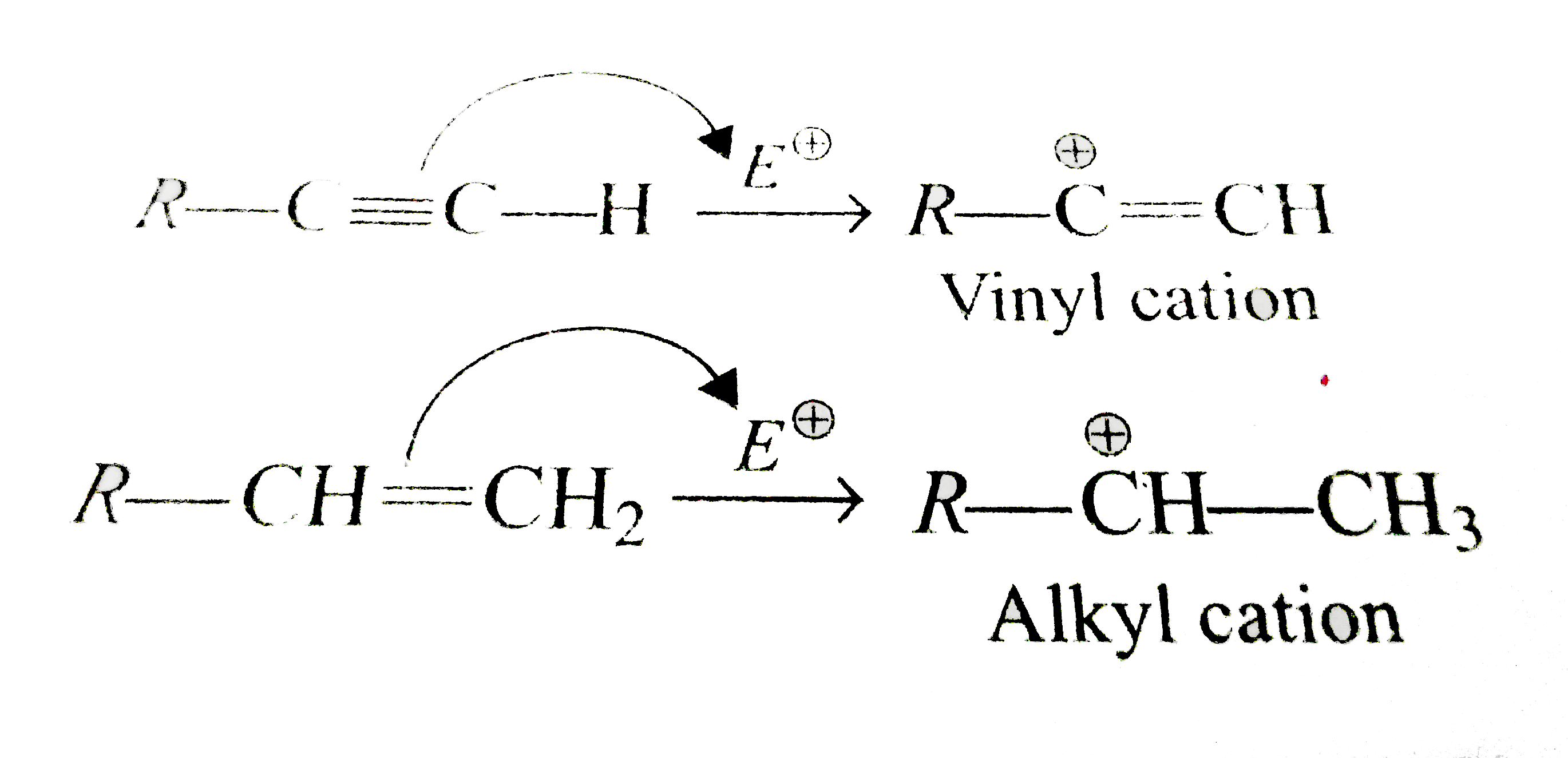

View Solution
Knowledge Check
Vladimir Markovnikov rule:
Alkenes undergo electrophilic addition reactions. It is triggered by the acid acting as a electrophile toward π-electrons of the double bond.
Markovnikov's rule states that when an unsymmetrically substituted alkene reacts with a hydrogen halide, the hydrogen atom adds to the carbon that has the greater number of hydrogen, e.g.,
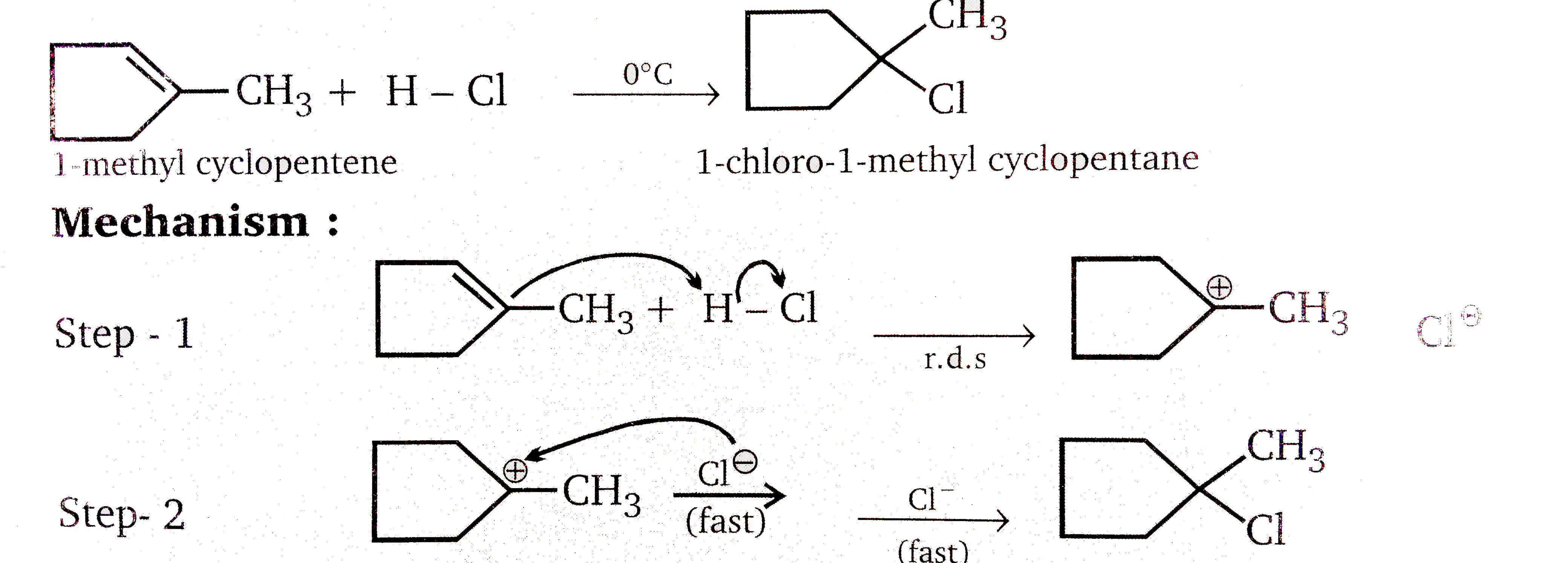 In which of the following reactions, product is racemic mixture?ACH3−CH2−CH=CH2HBr−−→CCl4B
In which of the following reactions, product is racemic mixture?ACH3−CH2−CH=CH2HBr−−→CCl4B C
C DAll of these
DAll of theseVladimir Markovnikov rule:
Alkenes undergo electrophilic addition reactions. It is triggered by the acid acting as a electrophile toward π-electrons of the double bond.
Markovnikov's rule states that when an unsymmetrically substituted alkene reacts with a hydrogen halide, the hydrogen atom adds to the carbon that has the greater number of hydrogen, e.g.,
 In which of the following reaction, diastereomers will be formed?A
In which of the following reaction, diastereomers will be formed?A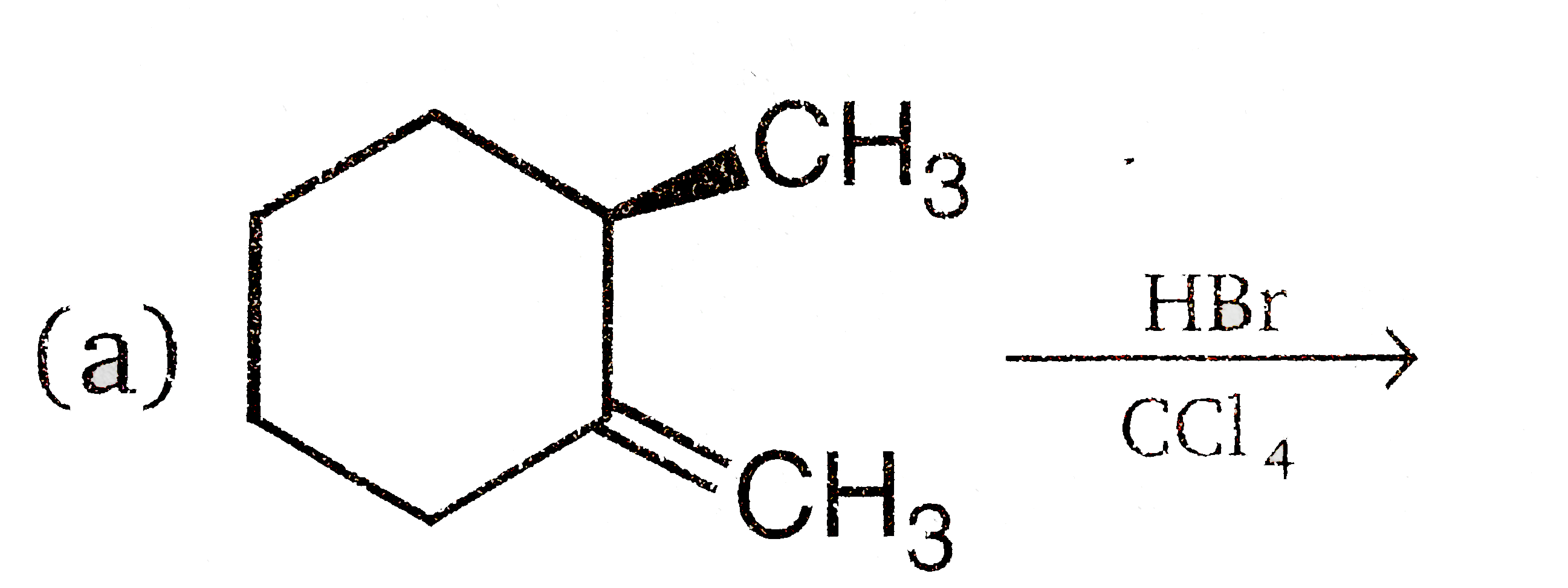 B
B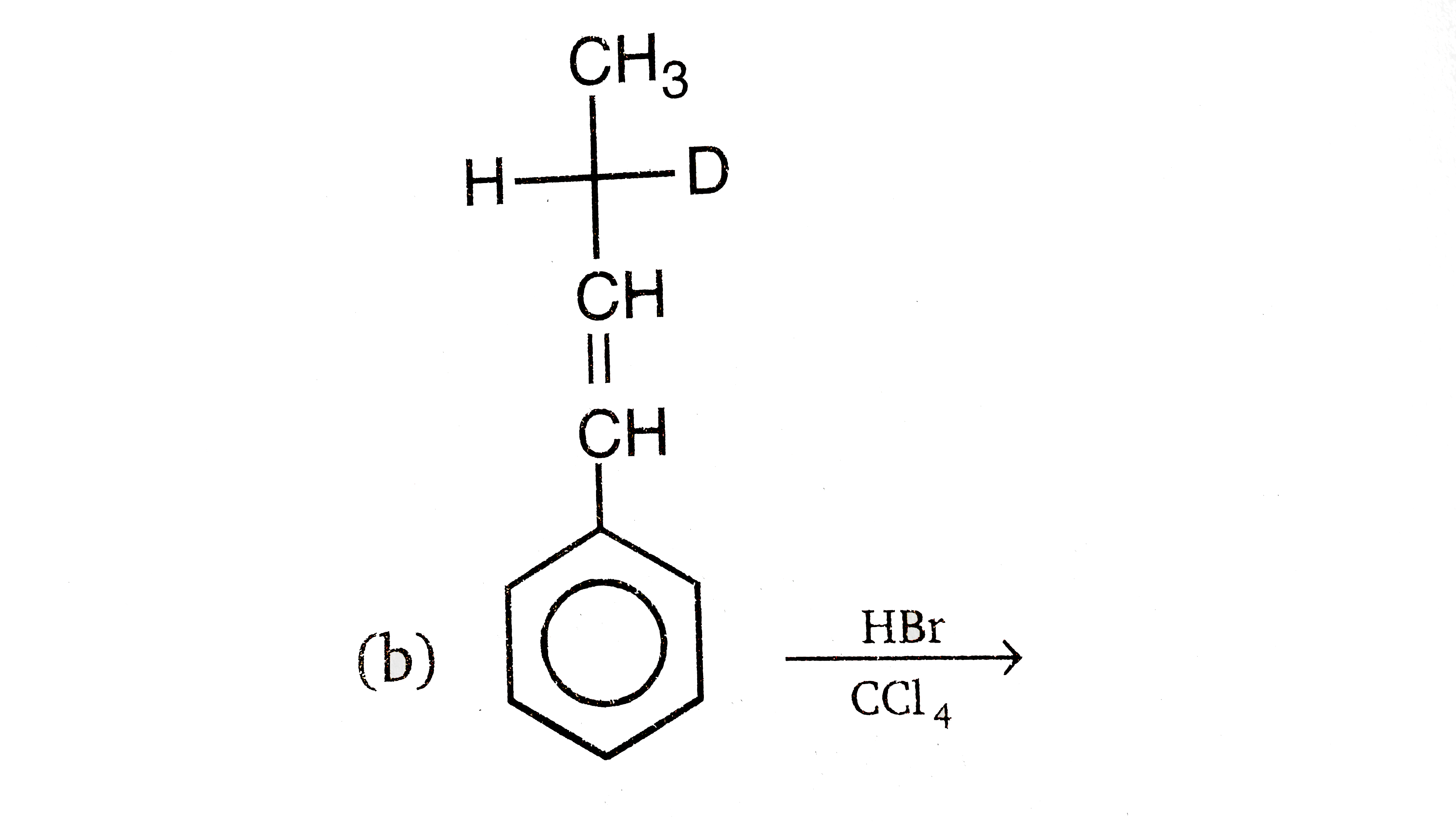 C
C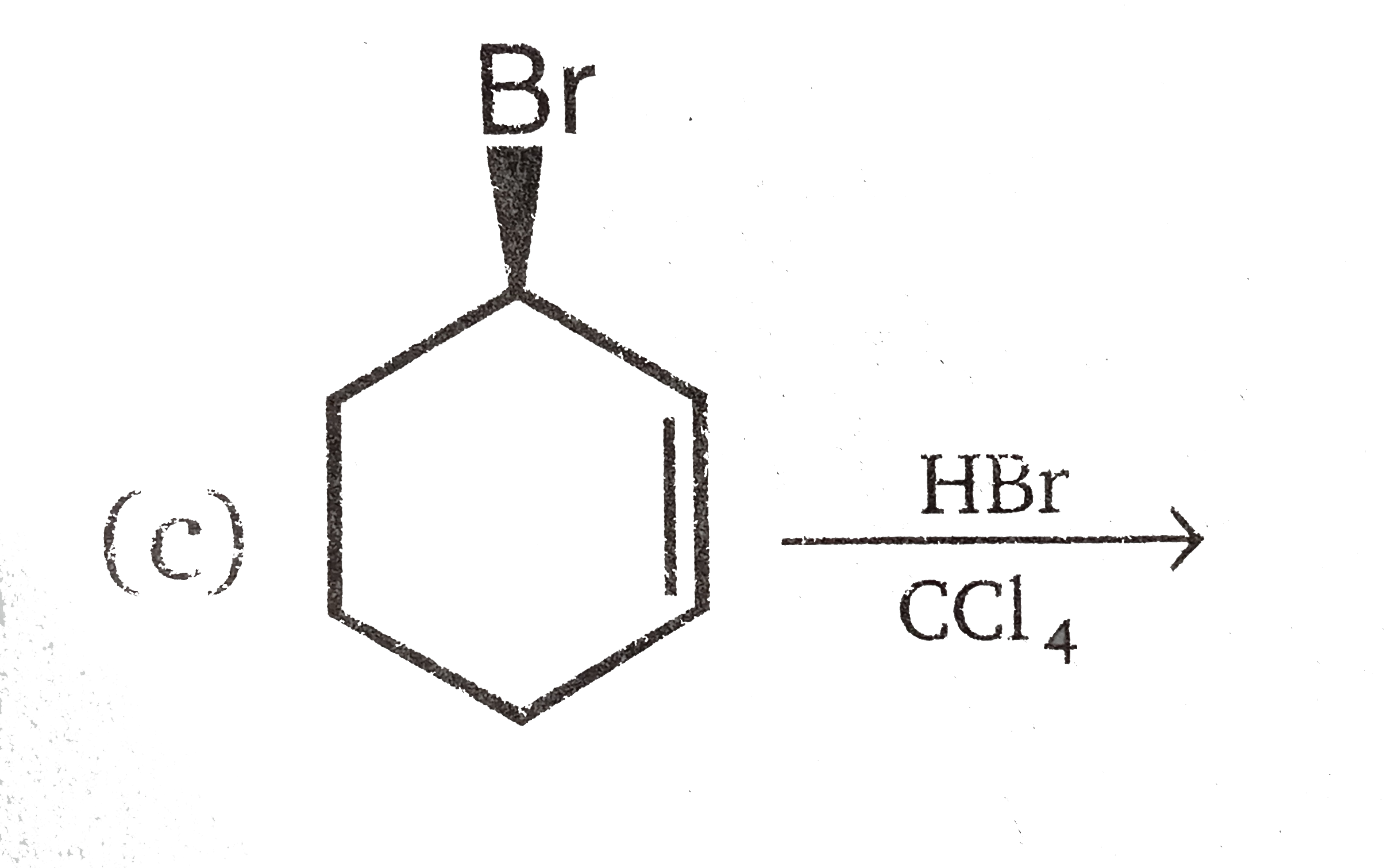 D
D
Vladimir Markovnikov rule:
Alkenes undergo electrophilic addition reactions. It is triggered by the acid acting as a electrophile toward π-electrons of the double bond.
Markovnikov's rule states that when an unsymmetrically substituted alkene reacts with a hydrogen halide, the hydrogen atom adds to the carbon that has the greater number of hydrogen, e.g.,
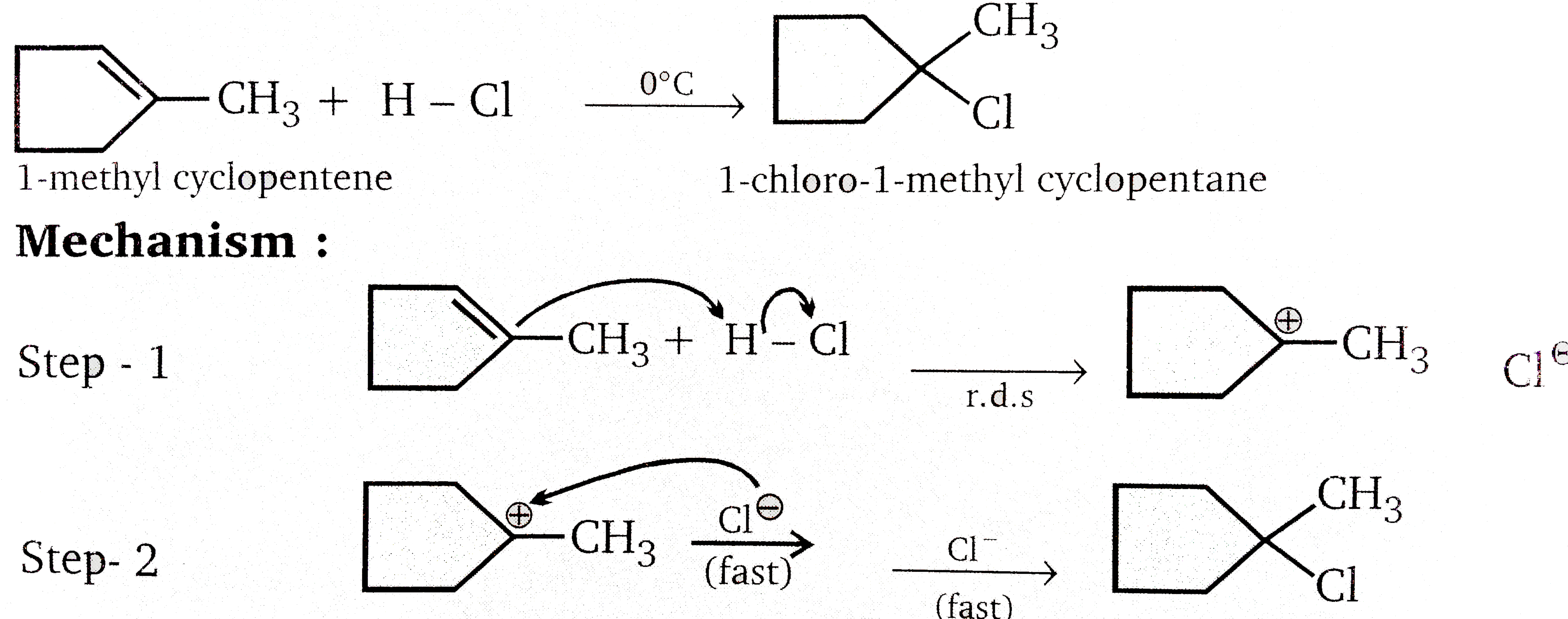
What is the energy profile for the given reaction?A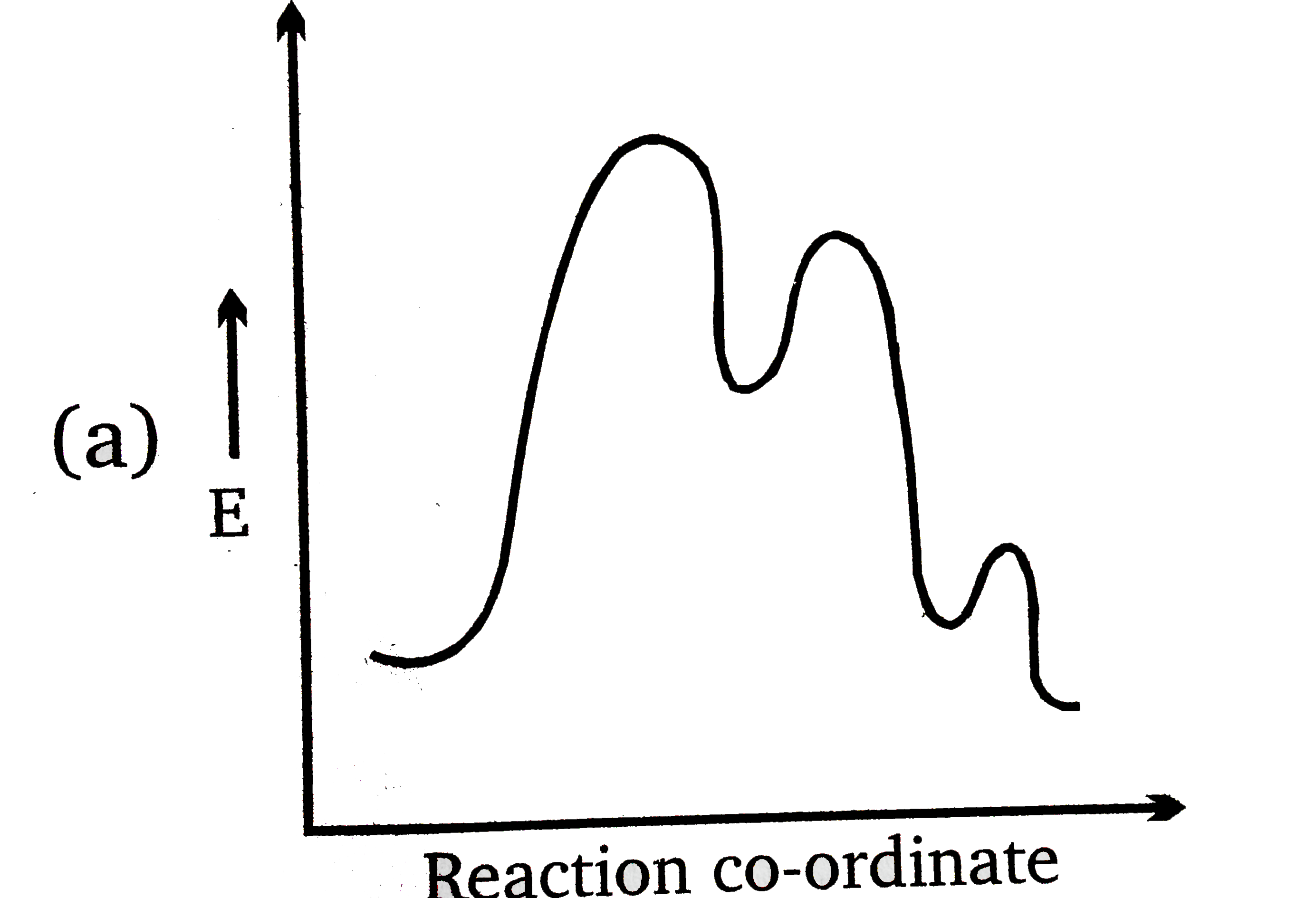 B
B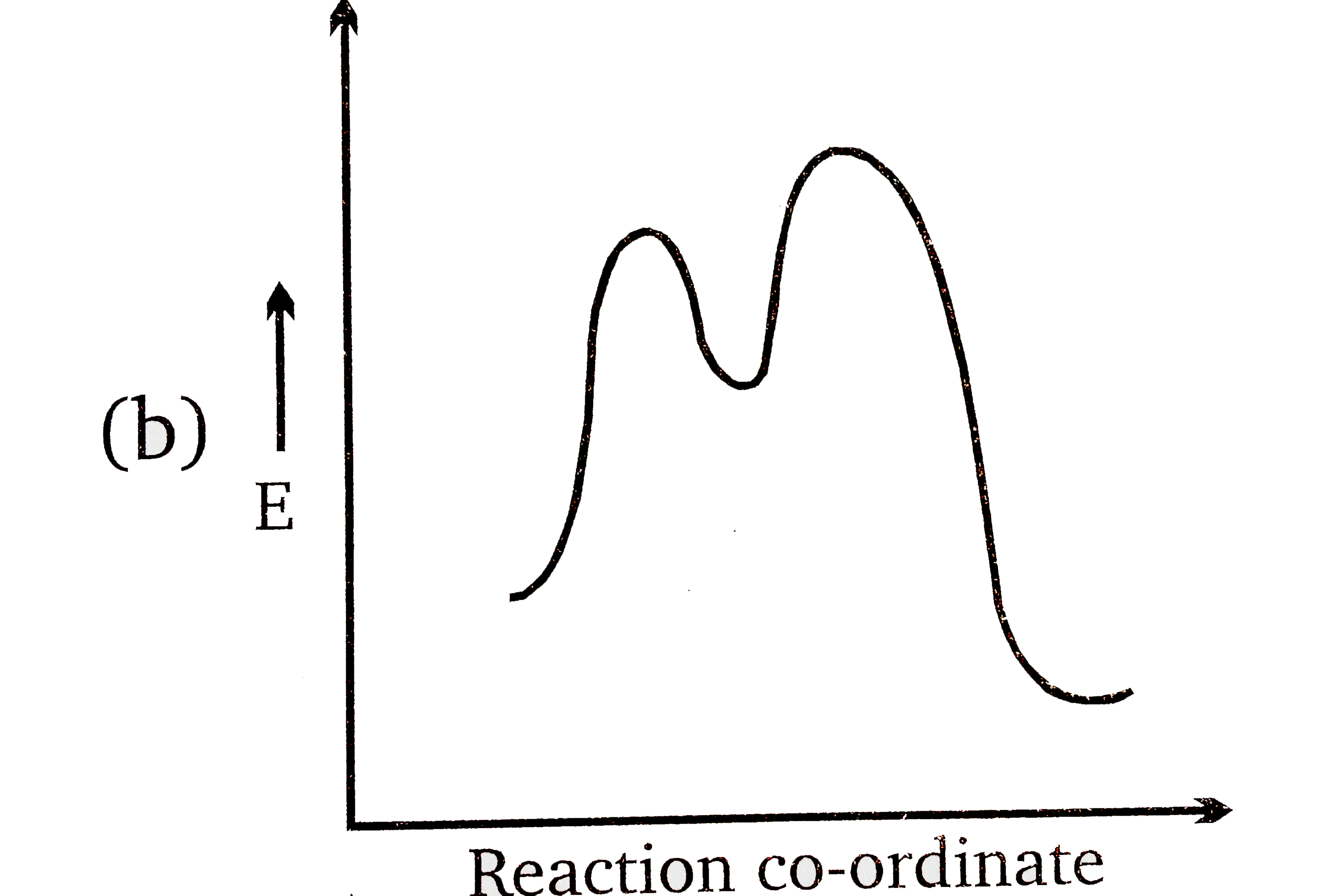 C
C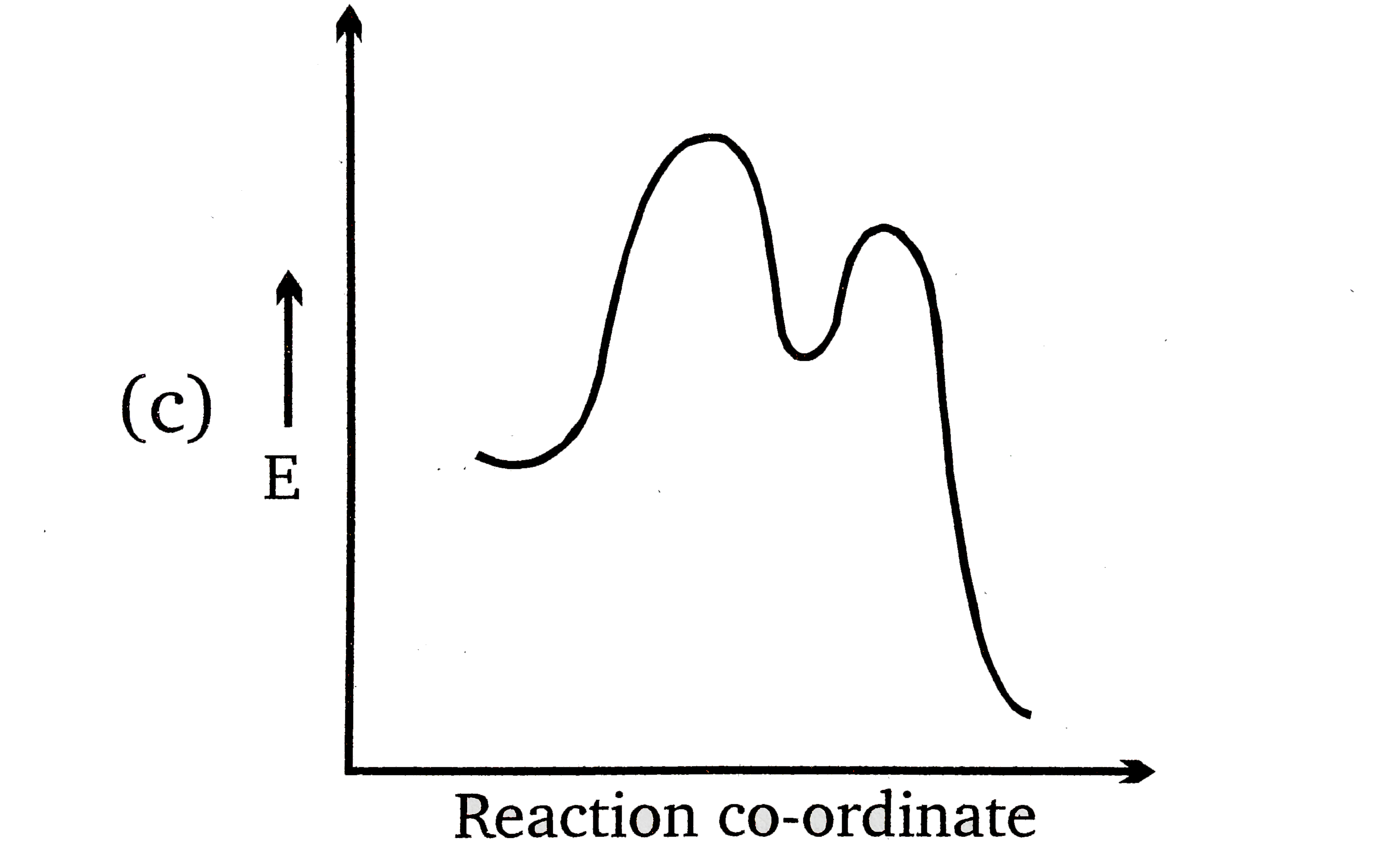 D
D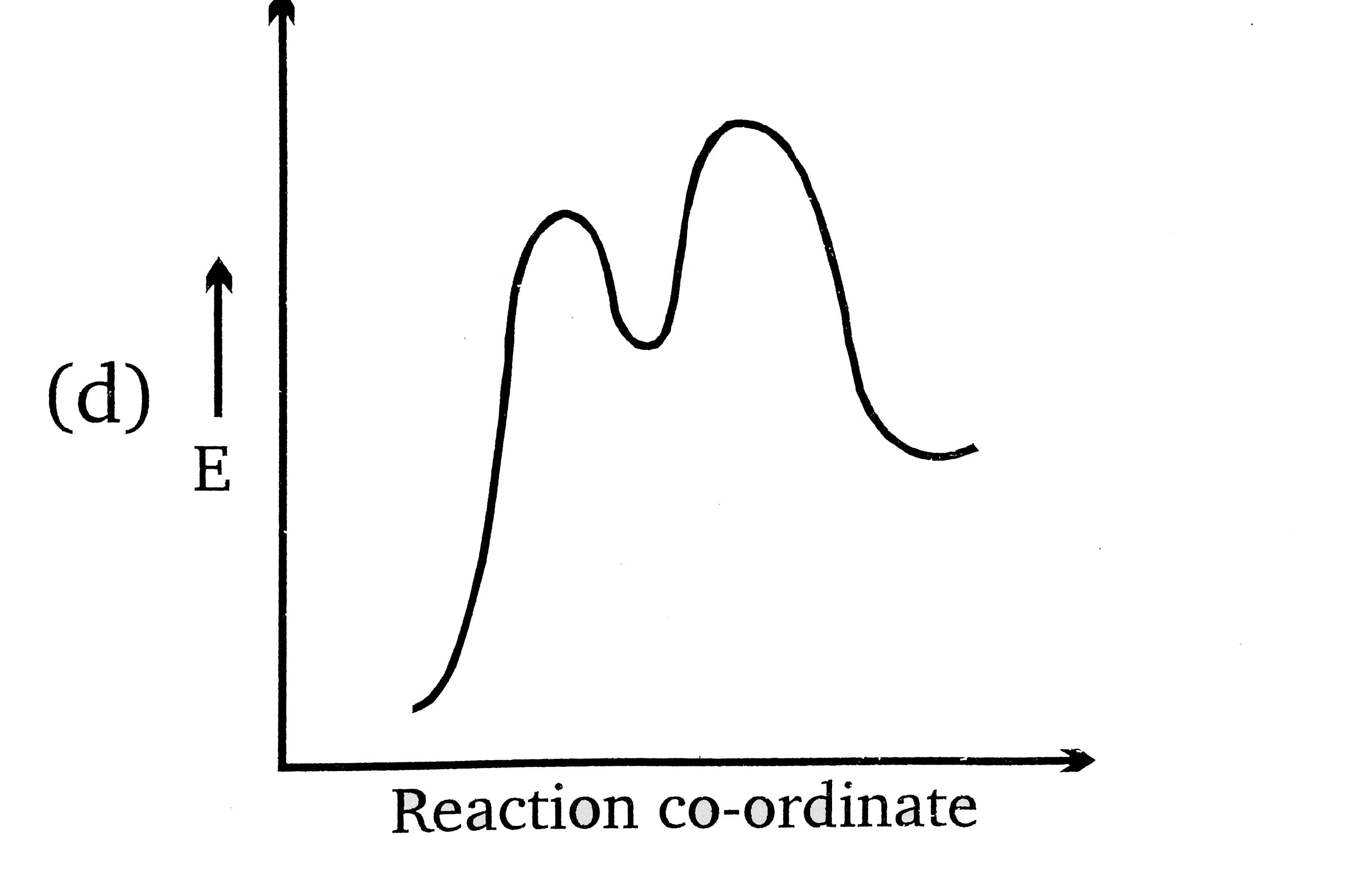
Vladimir Markovnikov rule:
Alkenes undergo electrophilic addition reactions. It is triggered by the acid acting as a electrophile toward π-electrons of the double bond.
Markovnikov's rule states that when an unsymmetrically substituted alkene reacts with a hydrogen halide, the hydrogen atom adds to the carbon that has the greater number of hydrogen, e.g.,
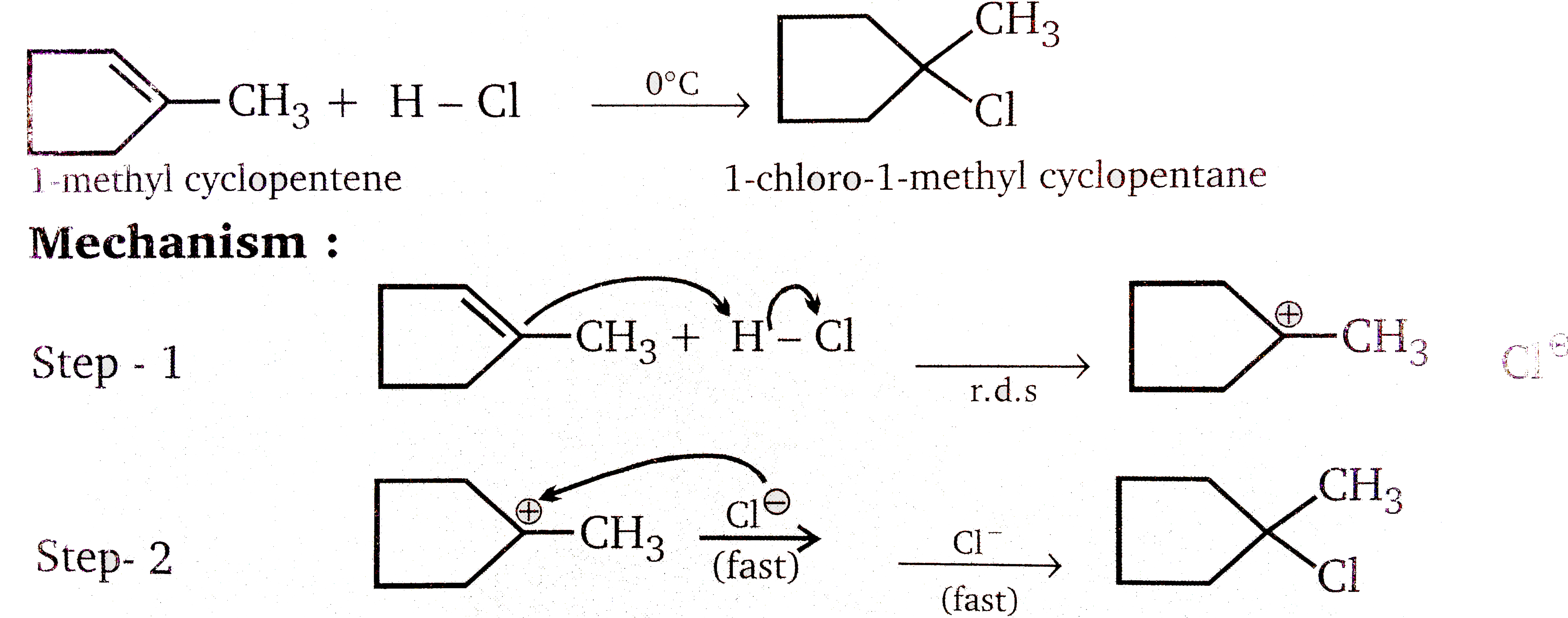 Which of the following is most reactive toward Markovnikov addition?
Which of the following is most reactive toward Markovnikov addition?
View SolutionVladimir Markovnikov rule:
Alkenes undergo electrophilic addition reactions. It is triggered by the acid acting as a electrophile toward π-electrons of the double bond.
Markovnikov's rule states that when an unsymmetrically substituted alkene reacts with a hydrogen halide, the hydrogen atom adds to the carbon that has the greater number of hydrogen, e.g.,
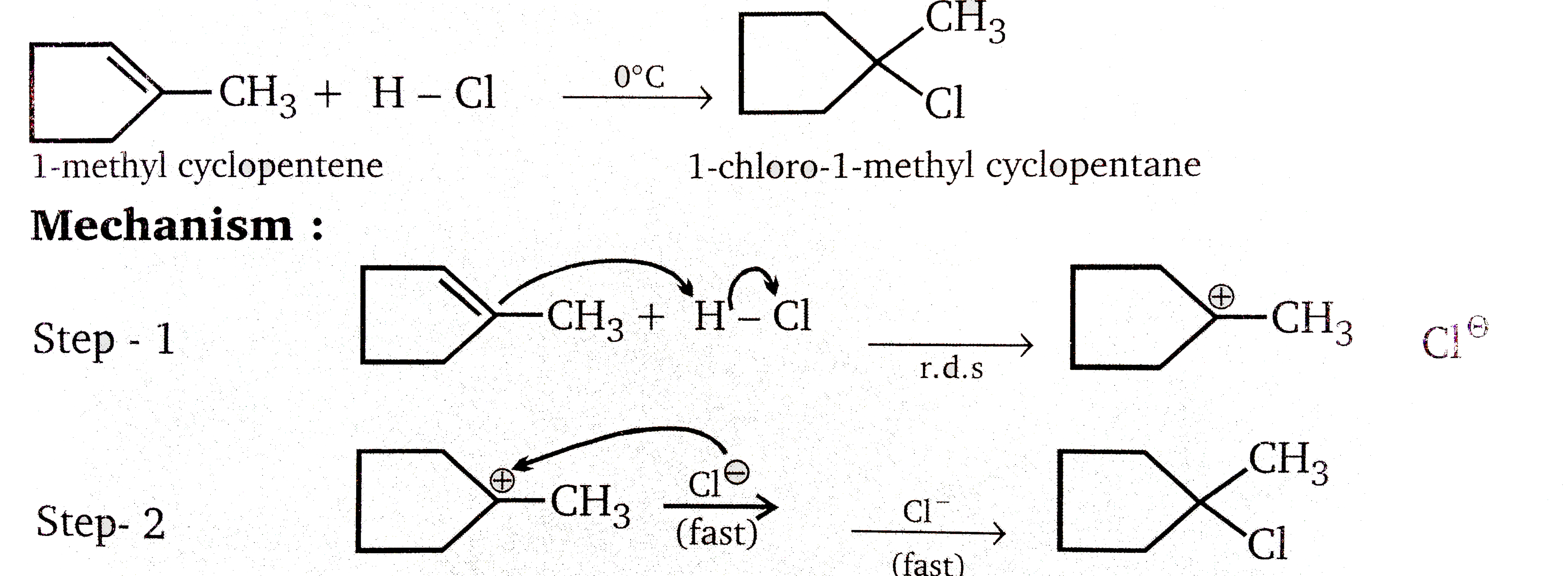
Identify the major products r1,r2 and r3 in the given reactions
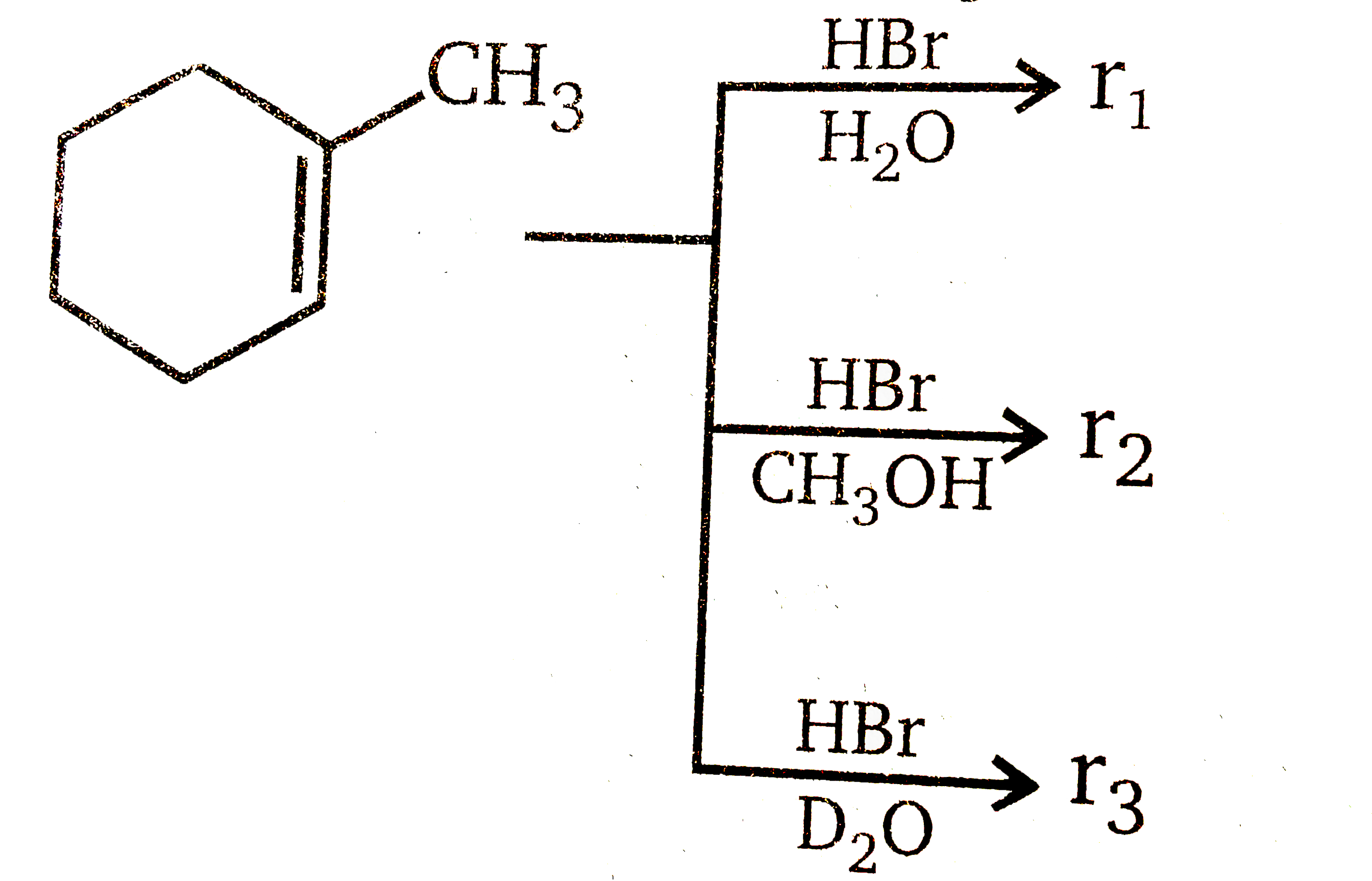
View SolutionAlkene and alkyne both undergo electrophilic additon beacuise of π electron density, they behave as elctron rich species, alknens are more reactive toward this reaction because the intermiediate formed when anE⊕ adds to an alkyne is a vinylic cation wheras sthe intermediate formed when an E⊕ adds to akene is alkyl cation, which is mopre stable.
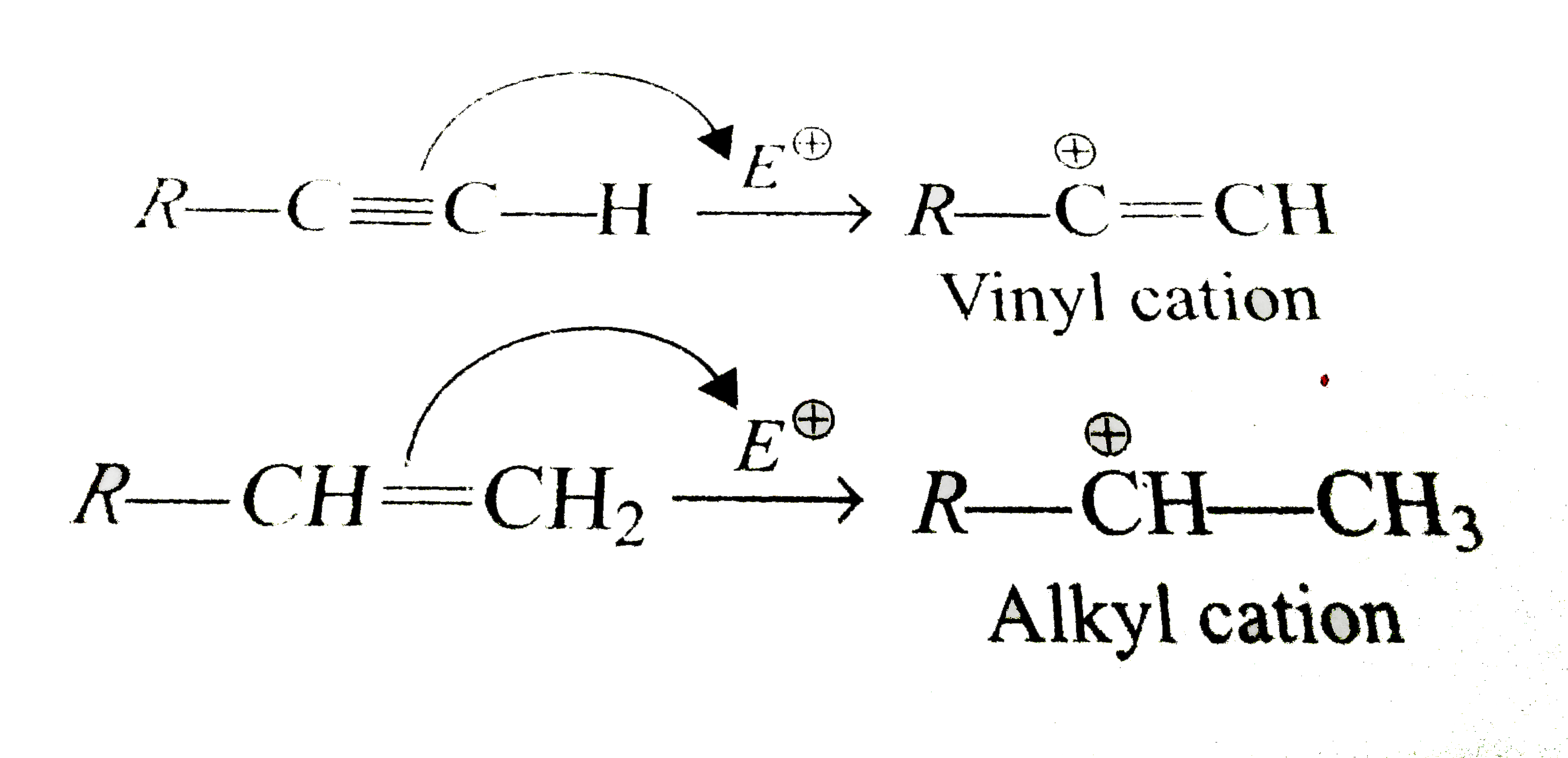 In the reaction:
In the reaction:

View SolutionAlkenes undergo electrophilic addition reactions. Electrophilic addition to unsymmetrical alkenes involve the formation of a more stable carbocation intermediate in the first step which is rate determining and carbocation is then attacked by a nuclephile to form product
Which one of the following alkene reacts most readily with HCI?
View SolutionAlkene and alkyne both undergo electrophilic additon beacuise of π electron density, they behave as elctron rich species, alknens are more reactive toward this reaction because the intermiediate formed when anE⊕ adds to an alkyne is a vinylic cation wheras sthe intermediate formed when an E⊕ adds to akene is alkyl cation, which is mopre stable.
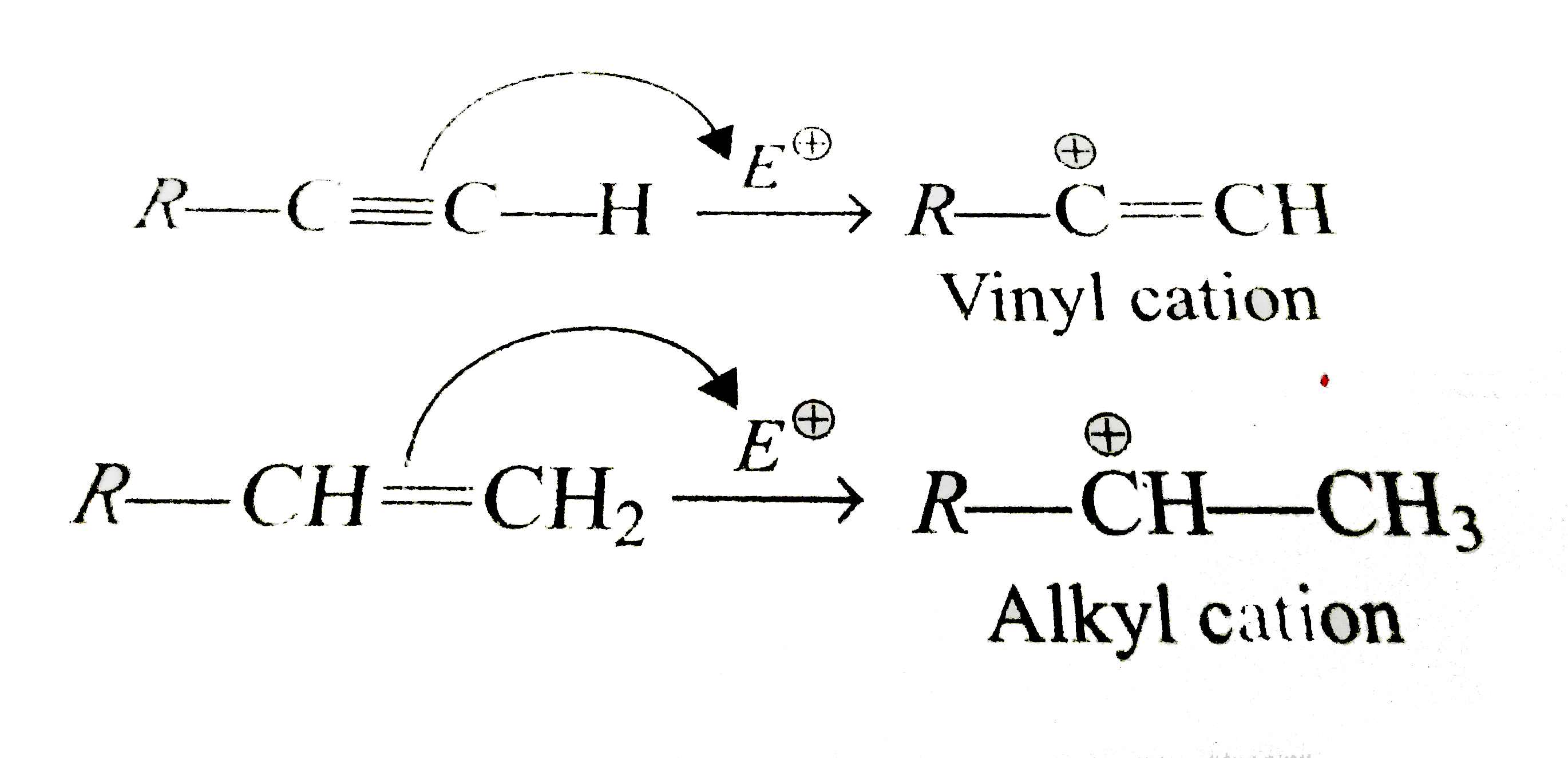
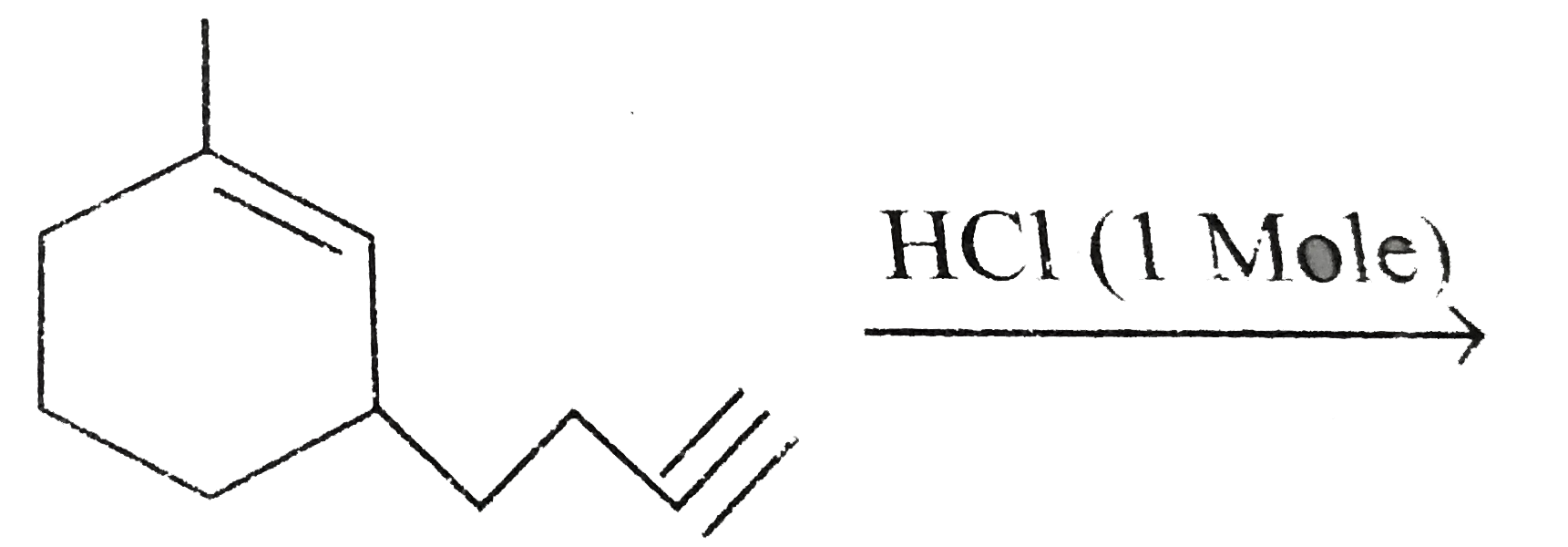
View Solution
